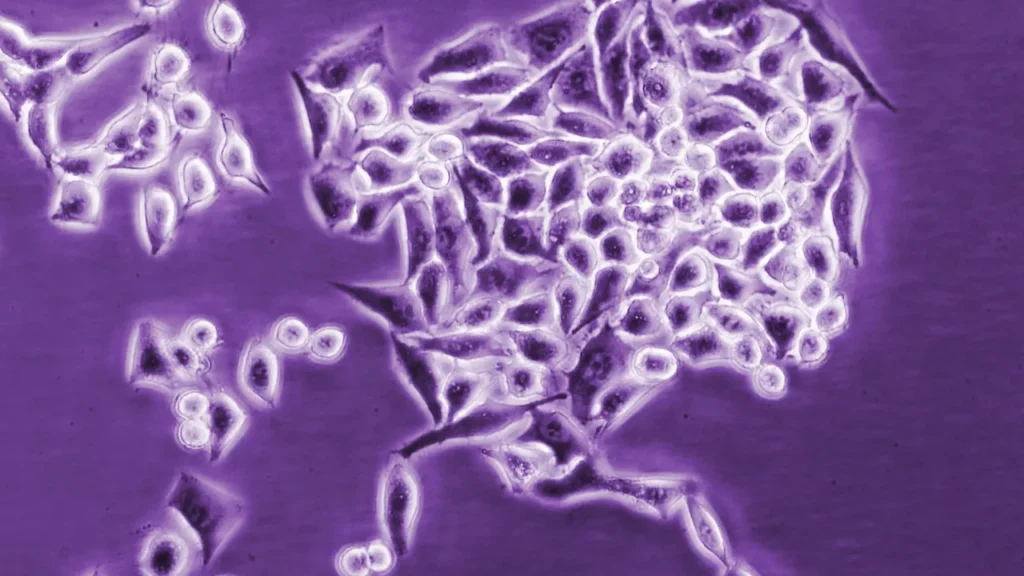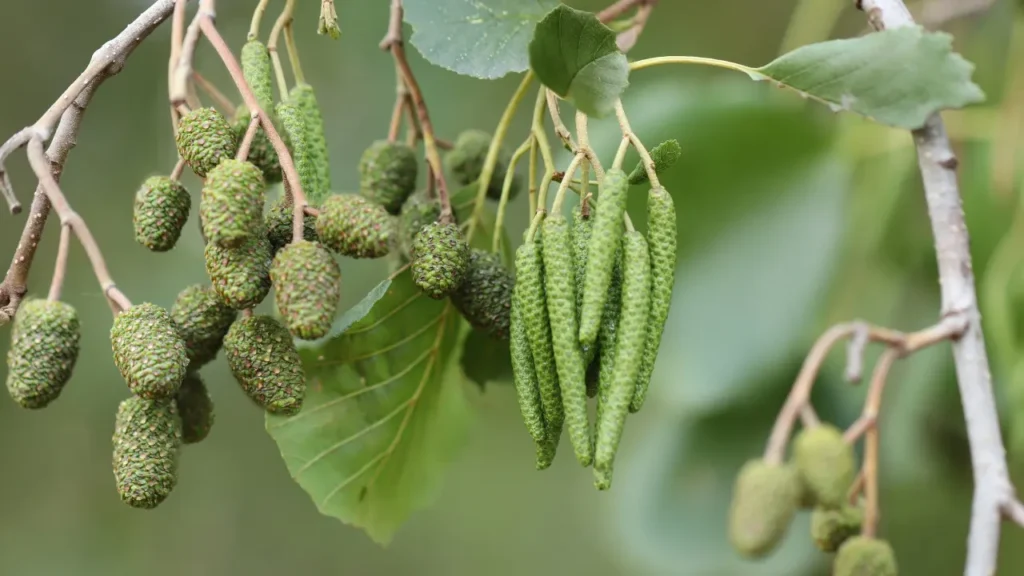Due to its multiple health advantages, black alder (Alnus glutinosa), a deciduous tree that is native to Europe, Asia, and Africa, has been utilized for millennia in traditional medicine. The Latin term “glutinosus,” which translates to “sticky,” is the source of the scientific name for the tree, which refers to its resinous buds. Due to their abundance in phytochemicals, black alder’s bark, leaves, and catkins are a vital source for many dietary supplements. This article offers a thorough analysis of the chemistry, health advantages, recommended dosage, negative effects, possible drug interactions, and appropriate uses of black alder.
You May Also Like:
Broccoli: Benefits, Dosage, Side Effects, Drug Interactions, and Other Important Information
Burning Bush: Benefits, Dosage, Side Effects, Drug Interactions, and Other Important Information
Black Alder: Benefits, Dosage, Side Effects, Drug Interactions, and Other Important Information is an original (NootropicsPlanet) article.
Nature of Black Alder
A deciduous tree in the same family as birches, hazels, and hornbeams is the black alder (Alnus glutinosa). It is indigenous to Europe, Asia, and Africa and thrives in damp areas like wetlands, riverbanks, and swamps. The tree has characteristic reddish-brown bark and can reach a height of up to 30 meters. Its leaves are dark green. On the same tree, the black alder’s flowers appear as catkins with distinct male and female components. Through a symbiotic relationship with the bacterium Frankia alni, the tree is also renowned for its capacity to fix nitrogen in the soil, enhancing soil fertility and encouraging the growth of other plants.
Health Benefits of Black Alder
Analgesic and anti-inflammatory effects
The analgesic and anti-inflammatory qualities of black alder have long been recognized. Studies have shown that its extracts can reduce the levels of pro-inflammatory cytokines such as tumor necrosis factor (TNF) and interleukin-1 (IL-1), which are essential for the inflammatory response. By preventing the synthesis of prostaglandins, which are accountable for pain perception, the triterpenes and flavonoids found in black alder also contribute to its analgesic effects.
Microbiological Activity
According to reports, black alder possesses antibacterial properties that can combat a variety of pathogens, including bacteria, fungi, and viruses. The plant’s tannins, flavonoids, and phenolic acids bring on this activity. They can change how permeable the microbial cell membrane is, inhibit microbial enzymes, and obstruct the production of nucleic acids, all of which cause the bacteria to perish.
Effects of Antioxidants
Black alder’s high concentration of phenolic compounds is thought to be the cause of its antioxidant capability. These substances can neutralize free radicals and unstable chemicals that can harm cellular structures and cause oxidative stress. By scavenging free radicals, black alder can shield cells from oxidative damage and stop the onset of numerous illnesses, including cancer, cardiovascular ailments, and neurological conditions.
Cancer Prevention
Numerous studies have shown that black alder extracts have anticancer characteristics that can stop the growth of various cancer cell lines. The plant’s tannins, flavonoids, and triterpenes have the ability to cause cancer cells to undergo apoptosis (programmed cell death) and prevent tumor angiogenesis, which is the growth of new blood vessels that feed the tumor.
Effects of Neuroprotection
Due to the high concentration of phenolic acids in black alder, which might lessen oxidative stress in the brain and shield neurons from harm, it has been suggested that black alder possesses neuroprotective properties. Additionally, these substances can modify neurotransmitter systems, such as cholinergic and serotonergic systems, which are essential for cognitive functions. They can also inhibit the aggregation of amyloid, a protein involved in the pathogenesis of Alzheimer’s disease.

Chemistry of Black Alder
Triterpenes, phenolic acids, flavonoids, and tannins are the major components of black alder. Plants contain tannins, which are polyphenolic chemicals with antioxidant, anticancer, and antibacterial effects. Another type of polyphenols called flavonoids has anti-inflammatory, anticancer, and antioxidant properties. The broad class of chemical molecules known as triterpenes has a number of biological effects, including anti-inflammatory, antiviral, and anticancer properties. Black alder contains phenolic acids, which have anti-inflammatory, antioxidant, and neuroprotective effects.
Physiological Mechanisms of Action
The abundance of bioactive chemicals in black alder, which exert their effects via a variety of physiological pathways, is responsible for the array health benefits:
- Cyclooxygenase (COX) enzymes, which are involved in the formation of prostaglandins, hormone-like compounds that mediate inflammation and pain, can be inhibited by the triterpenes and flavonoids found in black alder. These substances can lower the amounts of prostaglandins and lessen inflammation and pain by inhibiting COX enzymes.
- Antimicrobial Activity: Black alder contains tannins, flavonoids, and phenolic acids that can damage microbial cell membranes, block microbial enzymes, and obstruct the formation of nucleic acids, killing bacteria, fungi, and viruses.
- Antioxidant Activity: Black alder’s phenolic compounds have the potential to be strong antioxidants, neutralizing free radicals and reducing oxidative damage to cells and tissues. Additionally, these substances have the ability to increase the expression of antioxidant enzymes like catalase and superoxide dismutase (SOD), strengthening the body’s inherent antioxidant defenses.
- Anticancer Action: By triggering internal and extrinsic apoptotic pathways, which involve the activation of caspases, a family of proteases that initiate and carry out the cell death process, the bioactive chemicals in Black Alder can induce apoptosis in cancer cells. Additionally, by reducing the production of vascular endothelial growth factor (VEGF) and matrix metalloproteinases (MMPs), enzymes that remodel the extracellular matrix and promote angiogenesis, these substances can prevent angiogenesis, the growth of new blood vessels that supply nutrients to tumors.
- Neuroprotective benefits: Black alder phenolic acids can have neuroprotective benefits by lowering oxidative stress in the brain, preventing amyloid- aggregation, and altering neurotransmitter systems. These substances can also activate the nuclear factor erythroid 2-related factor 2 (Nrf2) pathway, a crucial regulator of cellular antioxidant defenses, upregulating antioxidant and detoxifying enzymes that shield neurons from oxidative damage.

Optimal Dosage of Black Alder
Due to the variety of black alder’s contents in various plant sections, extraction techniques, and the individual’s physiological state, determining the ideal dosage can be difficult. Traditional use, however, indicates that a daily dose of 1-2 gm of dried bark or leaves, taken as a tea or in capsule form, can have therapeutic effects without having a noticeable negative impact. Before beginning any new supplement, it is essential to speak with a healthcare provider because they can give you individualized guidance on the correct dosage based on your needs and medical history.
Side Effects of Black Alder
When used in moderation, black alder is usually regarded as safe, and adverse effects are uncommon. Consuming too much, however, might cause gastrointestinal issues like nausea, vomiting, diarrhea, and stomach pain. Tannins found in black alder may also prevent the absorption of various minerals, including calcium and iron, which, if consumed in large quantities over an extended period of time, may result in deficiencies. It is crucial to adhere to the dosage recommendations and seek medical advice if any adverse effects are felt.
Potential Substance Interactions with Black Alder
Certain potential interactions should be considered even if there aren’t well-established interactions between black alder and other compounds. Black alder’s tannin content makes it potentially incompatible with drugs containing iron, calcium, and other minerals, which could diminish their effectiveness. Furthermore, due to its natural characteristics, black alder may enhance the effects of analgesic, anti-inflammatory, and anticoagulant drugs. Before beginning a black alder supplement, you must speak with a healthcare provider if you are taking any prescriptions or have any pre-existing medical concerns.

Responsible Use of Black Alder
It is essential to take into account the following recommendations to ensure the ethical usage of black alder supplements:
- Source: Pick reputed manufacturers of high-quality black alder supplements who can answer questions about the product’s standardization, purity, and safety.
- Dose: Before beginning any new supplement, follow the dose recommendations and get medical advice.
- Due to a lack of safety information, black alder should not be used during pregnancy or lactation. Users should refrain from using it if they have a known allergy to black alder or other related plants.
- Monitoring: Keep a close eye on your well-being while taking black alder supplements, and let your doctor know if you experience any negative side effects.
Black Alder:
Conclusion
While there are anecdotal claims and historical uses, the scientific evidence supporting the health benefits of black alder is limited, and more research is needed. More rigorous scientific research, including clinical trials, is necessary to establish the safety and efficacy of black alder for potential health benefits. If you are considering using black alder or any herbal supplement, it’s advisable to consult with a healthcare professional. They can provide guidance based on your health status and potential medication interactions.

References:
- Phytochemical analysis and in vitro evaluation of the biological activity against herpes simplex virus type 1 (HSV-1) of Cedrela odorata L. and Juglans regia L. Retrieved from: https://link.springer.com/article/10.1186/s13065-017-0347-4
- A review of the characteristics of Black Alder (Alnus glutinosa (L.) Gaertn.) and their implications for silvicultural practices link:https://www.researchgate.net/publication/46383880_A_review_of_the_characteristics_of_Black_Alder_Alnus_glutinosa_L_Gaertn_and_their_implications_for_silvicultural_practices
Important Note: The information contained in this article is for general informational purposes only, and should not be construed as health or medical advice, nor is it intended to diagnose, prevent, treat, or cure any disease or health condition. Before embarking on any diet, fitness regimen, or program of nutritional supplementation, it is advisable to consult your healthcare professional in order to determine its safety and probable efficacy in terms of your individual state of health.
Regarding Nutritional Supplements Or Other Non-Prescription Health Products: If any nutritional supplements or other non-prescription health products are mentioned in the foregoing article, any claims or statements made about them have not been evaluated by the U.S. Food and Drug Administration, and such nutritional supplements or other health products are not intended to diagnose, treat, cure, or prevent any disease.


